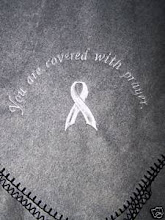
Kent gave this envelope to me the night before his first scheduled surgery with a list inside of it explaining what to do if he dies. The list includes instructions for obtaining a death certificate, contacting the life insurance company to submit a death claim, how to initiate social security survivorship benefits, accessing his laptop and business accounts with usernames and passwords and selling his financial advisory practice and the order in which to pay off or down debt.
In addition to this list, he made sure all of our marital assets were jointly owned which made managing the accounts during his decline and death and settling his estate much easier without going through probate. He had excellent health insurance as well as disability insurance that proved beneficial while waiting for social security disability benefits to start. He also made sure his will and trust including a living will declaration and appointed health care representative as well as power of attorney and their successors were current. He even planned a lot of his funeral and, last but not least, left me in the hands of a great financial advisor and accountant.
Being a financial advisor himself, he had his ducks in a row in case of something catastrophic, but a 32-month warning from his cancer diagnosis to his death gave him time to make changes and finish planning his end-of-life wishes. Because of his pre-planning, I only had to carry through with his decisions instead of making them for him.
Are you prepared if your husband (or wife) is unexpectedly diagnosed with a serious illness or suddenly dies? If not, you may want to research what steps have to be taken in your situation to be prepared, because it's one way to make the burden of such a trial much lighter.











